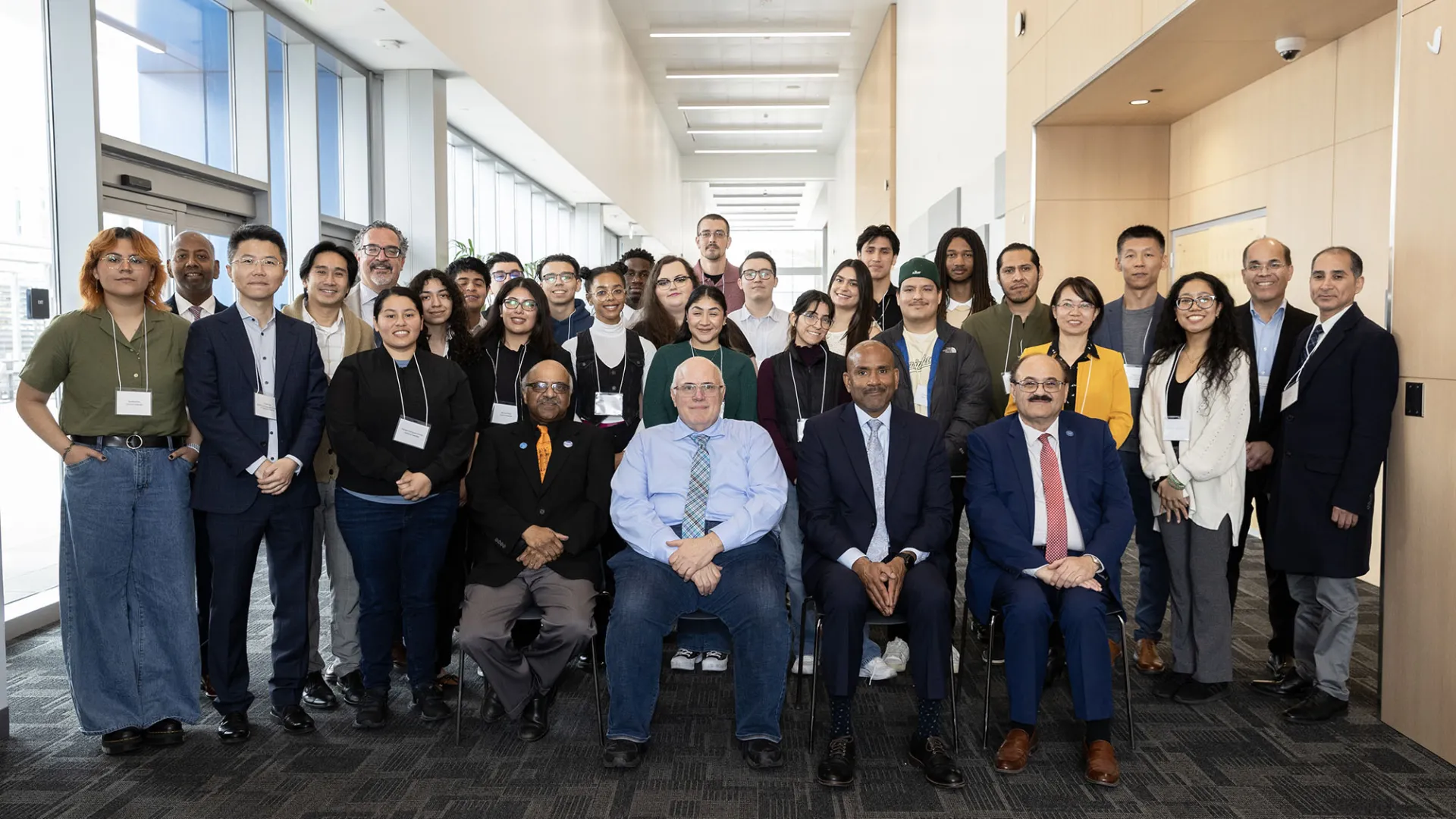Alan Llavore | Office of Strategic Communication | (909) 537-5007 | allavore@csusb.edu

Cal State San Bernardino’s School of Computer Science and Engineering has launched a new scholarship program for low-income students. Funded by the National Science Foundation, the $2.5 million grant provides $10,000 per year to support 30 students in affording their academic dreams in the field.
The funding is set to last for five years and will ultimately impact the lives of 150 students.
The Experiential Computing and Engaged Learning Scholarships (ExCELS) Program aims to create inclusive and sustainable computational sciences workforce pathways to careers in the Inland Empire. This region of Southern California is more populous and diverse than many U.S. states.
At a reception on Feb. 26, the program recognized its first scholarship recipients. They are: Ilda Martinez, Zachary Hampton, Andrew Espinoza, Melissa Perez, Hector Jimenez-Magadan, Ana Sordo, Miguel Saldana, Timothy Rodriguez, Cesar Contreras, Constance Rios, Cindy Alamillo, Pamela Rodriguez Cornejo, Miguel Madrigal, Yadhira Mejia, Jerry Cervantes-Fernandez, Anthony Gutierrez, Victor De La Presilla, and Ivette Adame-Castro.
“There is a critical need to train future leaders in data and computational sciences from diverse backgrounds,” said Sastry Pantula, dean of the College of Natural Sciences. “We are grateful to NSF and to our congressional staff for investing in support for our students. And to our faculty who provide much needed mentoring, undergraduate research and experiential learning opportunities.”
He underscored that this access is especially needed here in the Inland Empire for our low-income and underrepresented students who have the greatest potential.
“Our partnership with the CSU Chancellor’s Office is key to this initiative,” said Khalil Dajani, director of the School of Computer Science and Engineering. “Our goal is to make this a model for the entire CSU system, at all 23 campuses.”
The project is being overseen by Yunfei Hou, associate professor of computer science and engineering.
The primary objectives of the ExCELS program are:
- To increase the retention and graduation of low-income undergraduate students by providing scholarships to minimize their economic barriers
- To transform the introduction to programming courses with culturally responsive and active learning pedagogical techniques
- To develop a summer research program that provides guided research opportunities for low-income undergraduate students
- To expand and sustain a quarterly forum that brings together technology companies, policymakers and thought leaders, enabling students to participate in local community-based experiential learning opportunities
In ExCELS, financial support mitigates economic barriers that would otherwise prevent students from participating. At the same time, instructional changes and community engagement opportunities can help improve underrepresented students’ academic outcomes, self-esteem and their sense of belonging on campus.
The results of this project will significantly improve the computational sciences workforce in the Inland Empire region and beyond. Additionally, the proposed educational research will be made available to instructors who aim to incorporate engaged learning practices into their computing programs.
Furthermore, the proposed pedagogical changes in introductory computing courses will benefit more than 1,250 students during the project, including approximately 55% Pell Grant recipients, 76% first-generation students and 69% underrepresented minorities.
The eventual aim is for the ExCELS Program to build university-community ecosystems at CSU campuses that promote socio-technical innovation, cultivate competency, diversity and civic engagement in California’s STEM and computing workforce.
“We hope the ExCELS program will be more than just a scholarship. It can help build a more inclusive, innovative and engaged workforce in computational sciences,” Hou said.
For more information on how to apply, and a link to the scholarship application, visit the ExCELS Program website.
To learn more, visit the College of Natural Sciences webpage and the School of Computer Science and Engineering webpage.